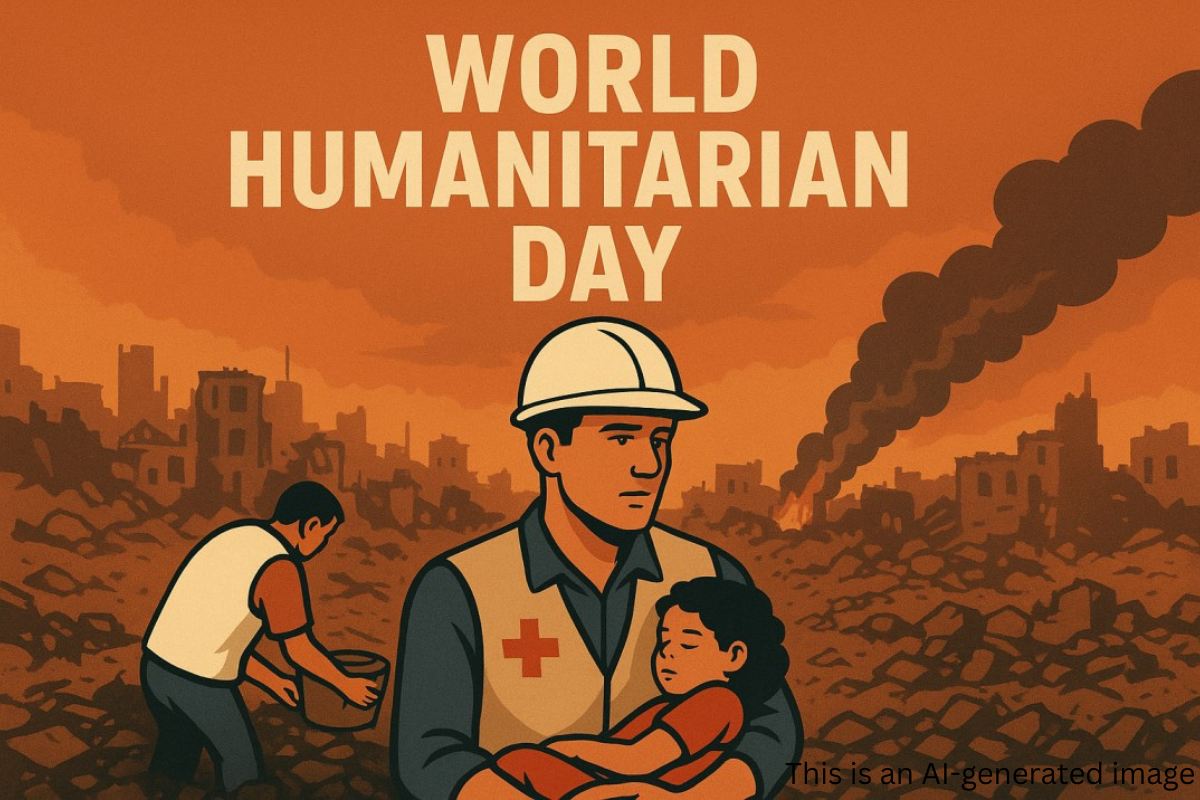Each year on August 19, civil society organisations around the world pause to honour those who risk everything to help others in crisis—aid workers, first responders, volunteers, and countless unsung heroes. In 2025, as this solemn day approaches, Gaza faces yet another devastating chapter in its ongoing humanitarian catastrophe.
Amid blockade, bombardment, and systemic collapse, humanitarian workers in Gaza have shown extraordinary courage. Medical responders—including international teams like Médecins Sans Frontières—have worked under extreme conditions. Even as hospitals came under repeated attack, such as the two strikes on Nasser Hospital, these workers continued providing critical care.
Grassroots initiatives have also embodied human compassion at its purest. The Gaza Soup Kitchen, founded in early 2024 by Hani and Mahmoud Almadhoun, served thousands of meals daily until Mahmoud was tragically killed in an Israeli drone strike in November 2024. Its legacy endures as a symbol of resilience. Similarly, Hamada Sho, a former food blogger turned volunteer cook for children in Gaza’s tent camps, provided not only nourishment but also moments of dignity amid despair. His work eventually halted due to blockade-induced shortages, but his story remains a testament to the power of individual compassion.
ActionAid colleagues in Palestine, including Gaza-based staff and partner organisations, have been responding on multiple fronts. By mid-2025, over 464,000 people had received humanitarian relief through ActionAid’s efforts. Working with partners like Al-Awda, ActionAid-supported healthcare reached more than 558,000 individuals, with over 70,000 receiving medical services in Al Nuseirat Hospital and Rafah. Aid distributions included food—hot meals, poultry, eggs, parcels, and vegetable baskets—reaching over 290,000 people; water, sanitation and hygiene (WASH) services for 47,000 people; hygiene kits and clothing for 15,400 people; shelter support; protection services; and cash assistance to hundreds of families.
In early 2025, a new actor emerged: the Gaza Humanitarian Foundation (GHF)—a U.S. and Israeli government–backed nonprofit created to bypass UN-led aid channels. Its operations, however, have drawn widespread condemnation. The GHF replaced over 400 UN distribution points with just four heavily securitized sites, fenced and located inside “evacuation zones,” with Israel Defense Forces oversight and U.S. contractors directing aid. This forced Palestinians to enter high-risk areas to collect food.
Since GHF began operations in late May 2025, mass shootings and crowd-control incidents have left more than 1,800 civilian aid-seekers dead and over 13,000 injured in Gaza—many at or near GHF sites. By July 31, the UN’s Office of the High Commissioner for Human Rights reported that 859 of at least 1,373 people killed while seeking aid had died at GHF locations. UN agencies, over 170 civil society organisations, and numerous activists have called the GHF model “politicized,” “weaponized,” and “inhumane,” arguing that it violates neutrality and endangers civilians.
Boston Consulting Group, initially involved in the project, faced internal upheaval when several staff resigned in protest. The firm later disciplined senior leaders for misleading conduct, and multiple aid organisations severed ties over ethical concerns.
On World Humanitarian Day 2025, Gaza’s humanitarian reality is marked by two starkly contrasting truths. On one hand, there is defiant hope—individuals and organisations persevering against impossible odds to deliver food, medicine, and compassion. On the other, there is a cautionary example—the GHF’s militarized aid model, which disregards neutrality, dignity, and civilian safety.
Let this day reaffirm our commitment to true humanitarian ideals: support independent, principled aid that upholds established norms and protects civilian lives; demand the reopening of all aid channels and the lifting of blockades that obstruct life-saving assistance; and hold all institutions accountable, ensuring humanitarian action is guided by human need—not political strategy.
 Author: Joseph Mathai
Author: Joseph Mathai

